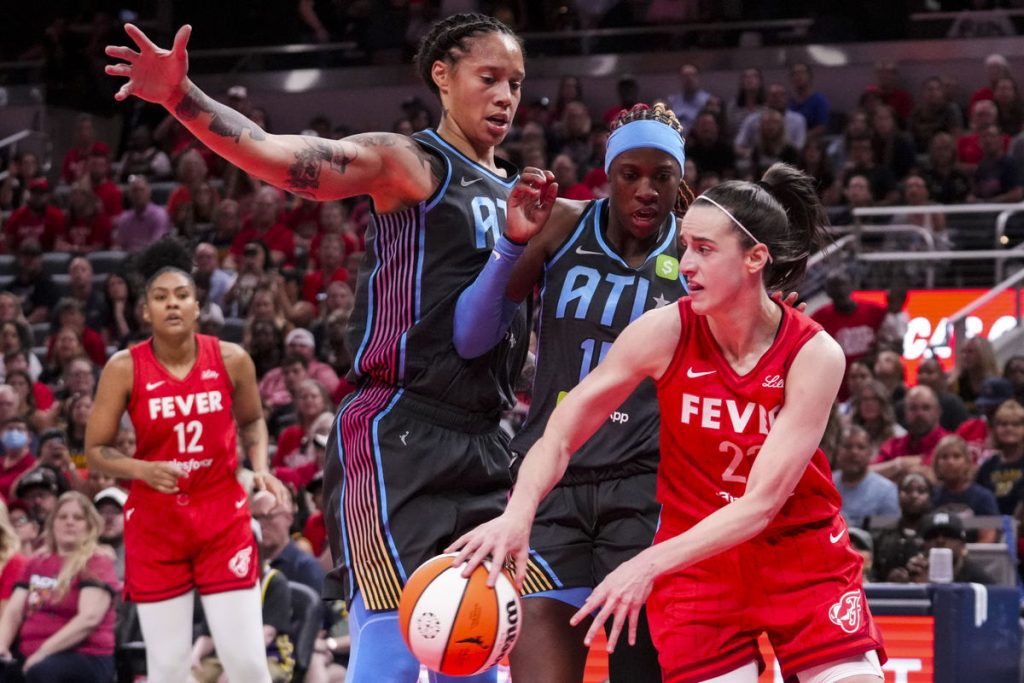Paige Bueckers recently commented on comparisons to Caitlin Clark, stating that, “These comparisons are just media-driven, narrative-driven.” Now, we have another media-driven narrative with ESPN’s Pre-All-Star rankings of the league’s best players, which as always, spark debate and disagreement. ESPN made some bold choices; Kelsey Plum, who was ranked 16th by her peers, found some vindication with a No. 12 placement on ESPN’s list. In contrast, top rookie Paige Bueckers did not make the top 10, landing at No. 13. According to ESPN, the league’s leading player heading into the All-Star break is Napheesa Collier.
Collier’s status comes as no surprise. She is currently the frontrunner for this season’s WNBA MVP, showcasing exceptional performance with averages of 23.6 points, 7.9 rebounds, and 3.4 assists per game. Meanwhile, questions arise about Caitlin Clark’s standing following a lackluster player vote for the WNBA All-Star draft, where she was ranked the 9th-best guard. Fans expressed their frustration, with many claiming other players were “jealous,” reigniting familiar controversies.
ESPN didn’t shy away from their 9th ranking, this time designating Clark as the ninth-best player overall, which is an improvement from her previous guard ranking. Only two guards rank higher: Allisha Gray at No. 5 and Sabrina Ionescu at No. 6. Despite facing challenges with efficiency and three-point shooting, along with some injuries, Clark’s playmaking prowess has kept her among the top 10, accumulating 47 assists in her last five games, including 13 against Dallas. Given past criticisms, this recognition might seem justified.
Fans Criticize ESPN’s Pre-All-Star Rankings
However, fans have raised concerns about ESPN’s decision to place Clark so highly, accusing the network of favoritism and inflating her status. Clark has become a divisive figure in the WNBA community. Many view her as a generational talent, while others argue she is overhyped and less skilled than advertised. Critics suggest that the league and media have made her their “poster girl,” avoiding deeper issues in their coverage. This discontent escalated with the release of midseason rankings that placed Clark at No. 9 despite her missing 10 games due to injury, leading many to label the ranking as more about branding than actual performance.
Statistics paint a mixed picture for Caitlin Clark. She averages 16.7 points per game, ranking 15th, yet boasts an impressive 9.0 assists, second-best overall. However, her 37.4 percent efficiency raises questions, especially with her struggling three-point shot at 28.9 percent. While critics highlight her defensive challenges, her offensive contributions keep her in discussions around the top 10. The debate here revolves between numbers and on-court presence, with Clark situated in the middle.
Comparisons to other players remain frequent, particularly with Angel Reese, who is currently playing at a high level. Despite each having their ups and downs this season, Reese stands out with her recent performances, whereas Clark seems to be experiencing difficulties now. Fans argue that Clark is not even the best player on her team, and this perception influences her ranking. All of this scrutiny is largely directed at her shooting slump, which recommended patience from both fans and analysts.
Lastly, it’s crucial to understand that Clark is not at 100% as she recovers from injury while managing a hefty workload. She faces off against the league’s toughest defenders and remains the focal point of opposing teams’ strategies. This inevitably affects her ability to find good shots. Recently, Clark admitted the mental toll has been challenging, emphasizing the need for self-compassion during her recovery process. So, the call for patience seems entirely warranted.



